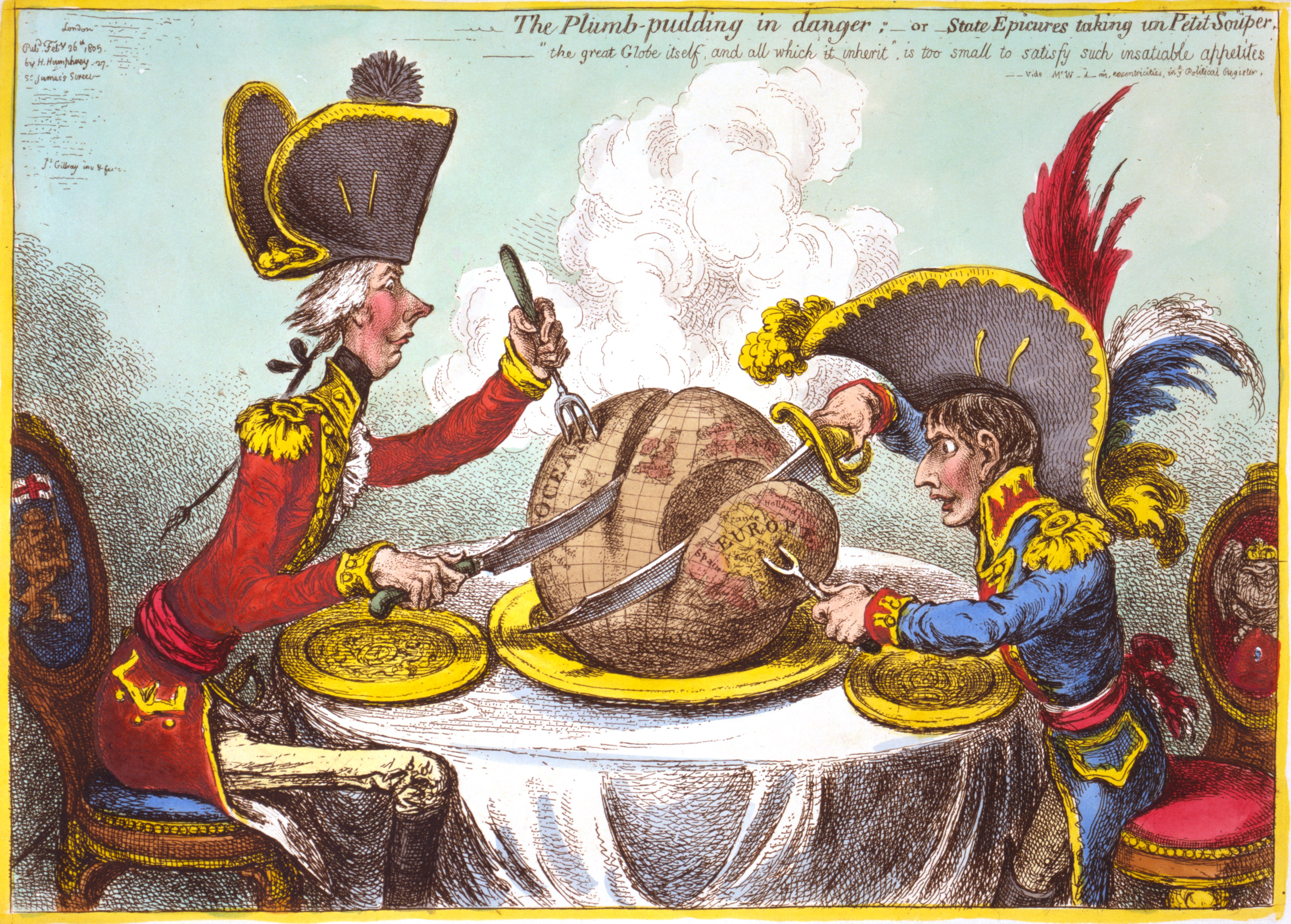m (Added category) |
m (Links) Tag: Visual edit |
||
| Line 1: | Line 1: | ||
[[File:French_and_British_colonialism_cartoon.jpg|alt=|thumb|An 1805 cartoon depicting French and English colonialism of the globe.]] | [[File:French_and_British_colonialism_cartoon.jpg|alt=|thumb|An 1805 cartoon depicting French and English colonialism of the globe.]] | ||
'''Colonialism''' is the policy of a country seeking to extend or retain its authority over other people or territories, generally with the aim of economic dominance.<ref>''Webster's Encyclopedic Unabridged Dictionary of the English Language'', 1989, p. 291.</ref> [[Marxism]] views colonialism as a form of [[capitalism]], enforcing exploitation and social change. Marx thought that working within the global capitalist system, colonialism is closely associated with uneven development. It is an "instrument of wholesale destruction, dependency and systematic exploitation producing distorted economies, socio-psychological disorientation, massive poverty and neocolonial dependency".<ref>Watts, Michael (2005). "colonialism, history of". In Forsyth, Tim (ed.). ''Encyclopedia of International Development''. Routledge. [[ISBN (identifier)|ISBN]] [[Special:BookSources/9781136952913|<bdi>9781136952913</bdi>]].</ref> | '''Colonialism''' is the policy of a country seeking to extend or retain its authority over other people or territories, generally with the aim of economic dominance.<ref>''Webster's Encyclopedic Unabridged Dictionary of the English Language'', 1989, p. 291.</ref> [[Marxism]] views colonialism as a form of [[capitalism]], enforcing exploitation and social change. [[Karl Marx|Marx]] thought that working within the global capitalist system, colonialism is closely associated with uneven development. It is an "instrument of wholesale destruction, dependency and systematic exploitation producing distorted economies, socio-psychological disorientation, massive [[poverty]] and [[Neocolonialism|neocolonial]] dependency".<ref>Watts, Michael (2005). "colonialism, history of". In Forsyth, Tim (ed.). ''Encyclopedia of International Development''. Routledge. [[ISBN (identifier)|ISBN]] [[Special:BookSources/9781136952913|<bdi>9781136952913</bdi>]].</ref> | ||
Colonies are typically forced into specific modes of production by their colonial rulers. The search for raw materials and the current search for new investment opportunities is a result of inter-capitalist rivalry for capital accumulation. Lenin regarded colonialism as the root cause of imperialism, as imperialism was distinguished by monopoly capitalism at a global scale | Colonies are typically forced into specific modes of production by their colonial rulers. The search for raw materials and the current search for new investment opportunities is a result of inter-capitalist rivalry for capital accumulation. [[Vladimir Lenin|Lenin]] regarded colonialism as the root cause of [[imperialism]], as imperialism was distinguished by monopoly capitalism at a global scale | ||
== See also == | == See also == | ||
Revision as of 23:20, 16 March 2023

Colonialism is the policy of a country seeking to extend or retain its authority over other people or territories, generally with the aim of economic dominance.[1] Marxism views colonialism as a form of capitalism, enforcing exploitation and social change. Marx thought that working within the global capitalist system, colonialism is closely associated with uneven development. It is an "instrument of wholesale destruction, dependency and systematic exploitation producing distorted economies, socio-psychological disorientation, massive poverty and neocolonial dependency".[2]
Colonies are typically forced into specific modes of production by their colonial rulers. The search for raw materials and the current search for new investment opportunities is a result of inter-capitalist rivalry for capital accumulation. Lenin regarded colonialism as the root cause of imperialism, as imperialism was distinguished by monopoly capitalism at a global scale
See also
References
- ↑ Webster's Encyclopedic Unabridged Dictionary of the English Language, 1989, p. 291.
- ↑ Watts, Michael (2005). "colonialism, history of". In Forsyth, Tim (ed.). Encyclopedia of International Development. Routledge. ISBN 9781136952913.